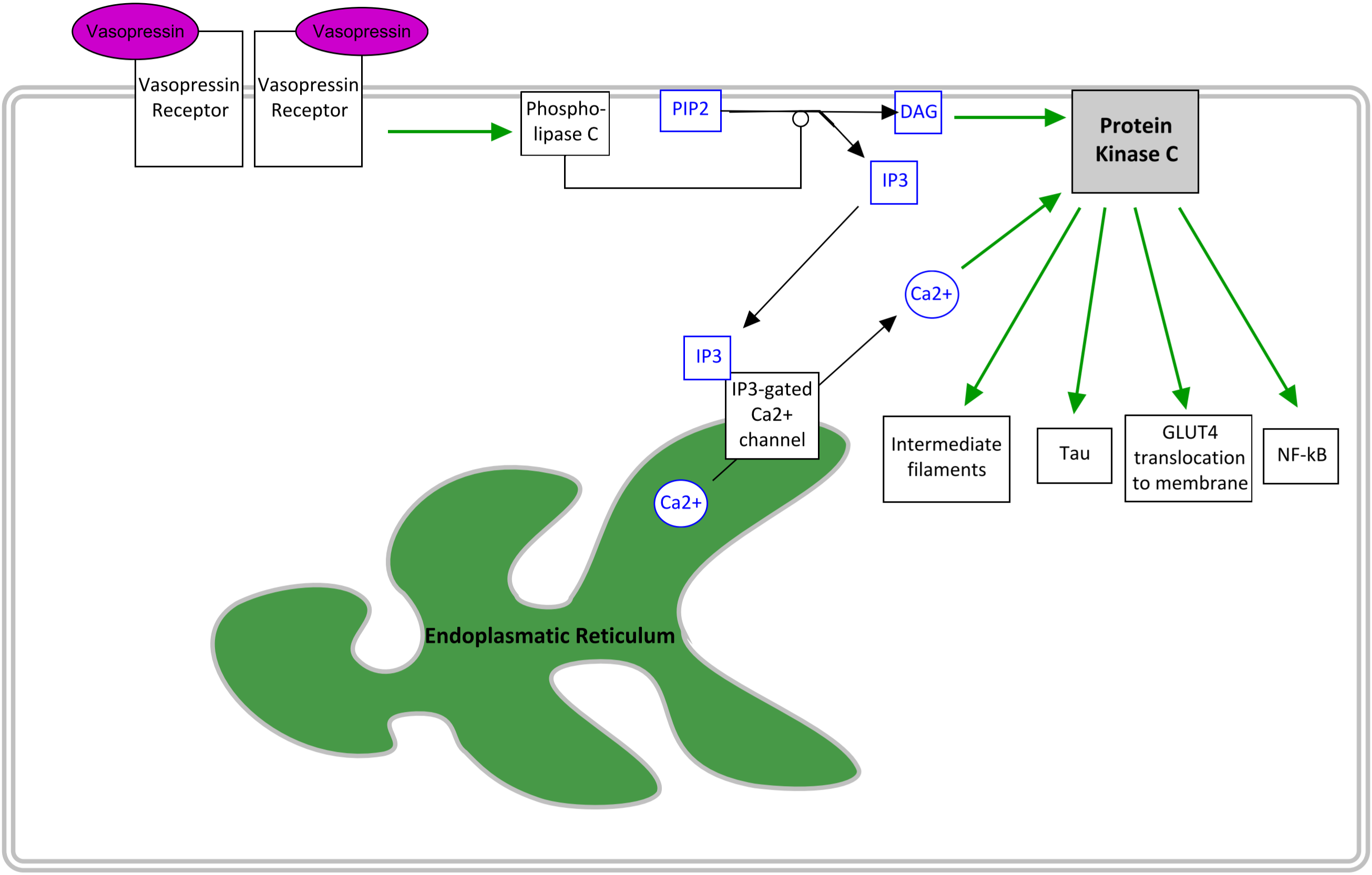Page created on May 13, 2018. Last updated on December 18, 2024 at 16:55

Protein kinase C is activated in the signal pathways of many hormones. The most important ones are acetylcholine, angiotensin II, glutamate, histamine, vasopressin and oxytoxin. Vasopressin is shown in the figure as an example.
Protein kinase C performs many functions of which we don’t have to know the details of. Some are shown on the figure, but other functions are receptor desensitization, membrane structure regulation, gene expression, immune response cell cyclus, learning and memory.
| Abbreviation | Name | Function |
| PLC | Phospholipase C | Catalyses the formation of PIP2 in the cell membrane to IP3 and DAG |
| PIP2 | Phosphatidylinositol 4,5-bisphosphate | A membrane lipid. Is cleaved by PLC into IP3 and DAG. |
| IP3 | Inositol triphosphate | Travels to the surface of the ER where it binds to and opens the IP3-dependent Ca2+ channel, releasing Ca2+ from the ER into the cytosol |
| DAG | Diacylglycerol | Travels along the cell membrane until it binds to PKC |
| PKC | Protein kinase C | Activated by DAG and Ca2+, performs many functions in the cell. |